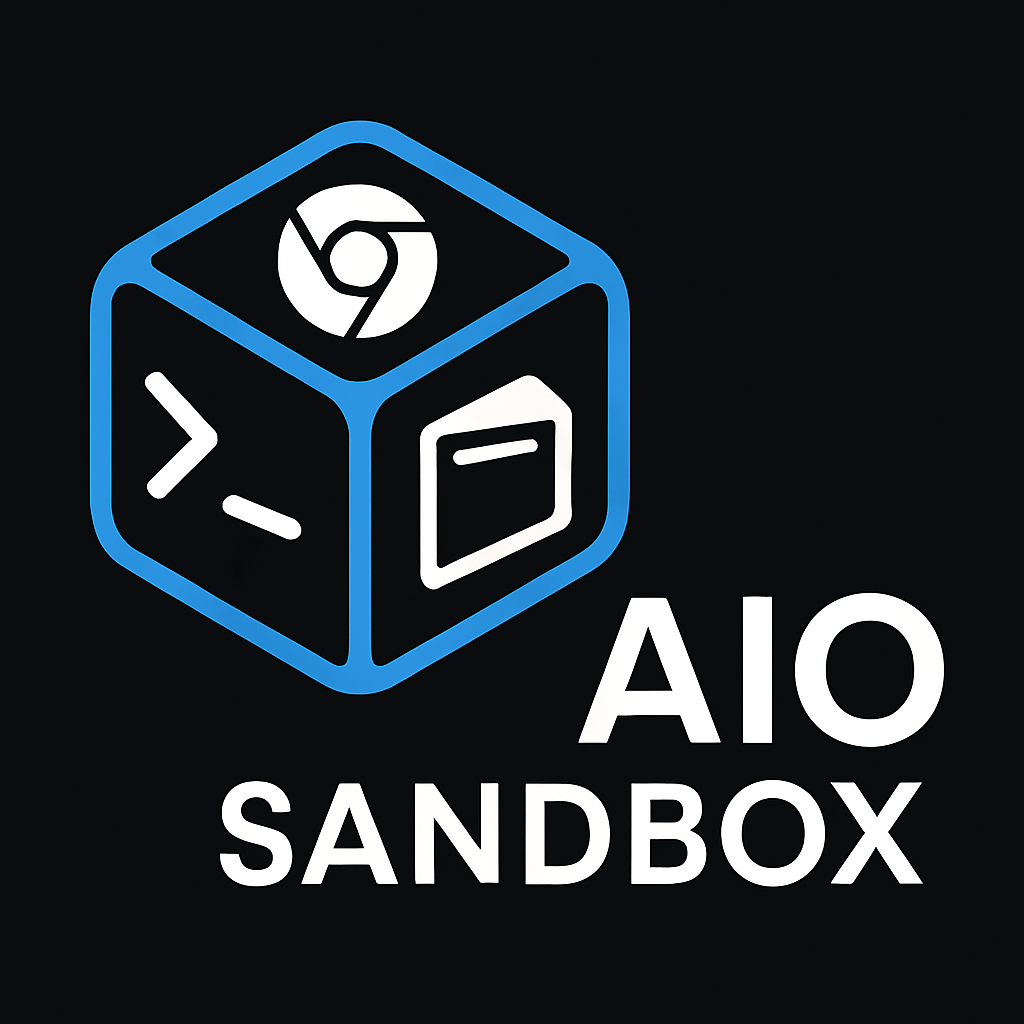MCP Services API
AIO Sandbox provides comprehensive Model Context Protocol (MCP) integration, aggregating multiple useful MCP servers into a single endpoint for easy agent integration.
MCP Hub Endpoint
Base URL: /mcp or /v1/mcp
Protocol: Streamable HTTP with MCP-compatible message format
The MCP Hub aggregates the following pre-configured servers:
| Service | Description | Capabilities |
|---|---|---|
| Browser | Browser automation and control | Navigate, interact, screenshot, extract content |
| File | File system operations | Read, write, search, manage files and directories |
| Terminal | Shell command execution | Run commands, manage sessions, stream output |
| Markitdown | Document conversion | Convert documents to markdown format |
| Arxiv | Academic paper access | Search and retrieve research papers |
Connection Methods
Streamable HTTP
Connect to the MCP hub using standard HTTP with MCP message format:
Alternative Endpoint
You can also use the versioned endpoint:
MCP Message Flow
1. Initialize Connection
2. List Available Tools
3. Call Tools
Available MCP Tools
Browser Tools
Navigate and interact with web pages:
File System Tools
Manage files and directories:
Terminal Tools
Execute shell commands:
Integration Examples
Python MCP Client
JavaScript MCP Client
Error Handling
MCP responses follow the JSON-RPC 2.0 error format:
Common error codes:
-32700: Parse error-32600: Invalid Request-32601: Method not found-32602: Invalid params-32603: Internal error
Rate Limiting
MCP services have the following rate limits:
- Tools/list: 10 requests/minute
- Tools/call: 100 requests/minute per tool
- File operations: 50 operations/minute
- Browser actions: 20 actions/minute
Security Considerations
- MCP services run in the same sandbox environment
- File operations are restricted to the sandbox file system
- Browser actions are isolated within the container
- No external network access from MCP tools (except browser)
Next Steps
- Browser Automation - Learn about browser capabilities
- File Operations - Understand file system access
- Terminal Usage - Master command execution
- Integration Examples - See practical implementations
For more details about the Model Context Protocol, visit the official MCP documentation.
ON THIS PAGE

